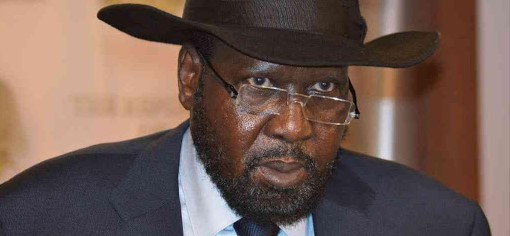South Sudanese President Salva Kiir Mayardit on Wednesday blamed "international sanctions" for the country's deepening economic crisis, saying the sanctions have made the country poor.
On Friday, July 9, South Sudan prepares to mark the 10th anniversary of its independence.
''Even though we believe that we are rich, but all the punishments levelled on us did not make us prosper the way we had wanted. This is why we are not celebrating the 10th anniversary the way people would have wanted it to be,'' Kiir said while speaking to Citizen TV news anchor Jeff Koinange on Wednesday.
According to the South Sudanese leader, people are hungry, and whatever resources the country has can be mobilized for the celebrations, a move that is likely to disappoint the populace. ''So, it is better that very few people like the diplomats, the military can just come and sit, and then I deliver my address to the people,'' Kiir said.
In 2017, the US imposed sanctions on senior South Sudanese officials, including military officers, on the pretext that they were obstructing the peace process.
The president urged the international community to give his government room to do its own thing. ''The first one is the issue of the sanctions, and they have now added on it the arms embargo, which has, in turn, tied our arms because we are supposed to implement an agreement that we had signed,'' Kiir said.
In May, the UN Security Council approved a resolution extending an arms embargo and sanctions against South Sudan for one year.
The world body first slapped an arms embargo on South Sudan in 2018 and subsequently renewed it in 2019 to prevent a continuation of civil war.
President Kiir observed that to implement the security arrangement as per the September 2018 peace agreement, his government needs arms for the unified forces that are in training camps across the country.
''The implementation of the security arrangements cannot be completed without arming the unified forces, which are made up of all groups previously at war,'' he said.
Two years after independence from Sudan in 2011, South Sudan plunged into a civil war. A peace agreement was reached but another conflict erupted in 2016, before a second peace accord—the 2018 peace agreement—was reached.
The partners in the peace agreement are yet to unify and deploy armed forces. The unity government says it is financially constrained to complete the implementation of the security arrangements that include unification of both government and opposition soldiers.
The formation of a unified army is a cornerstone of the September 2018 peace agreement.




